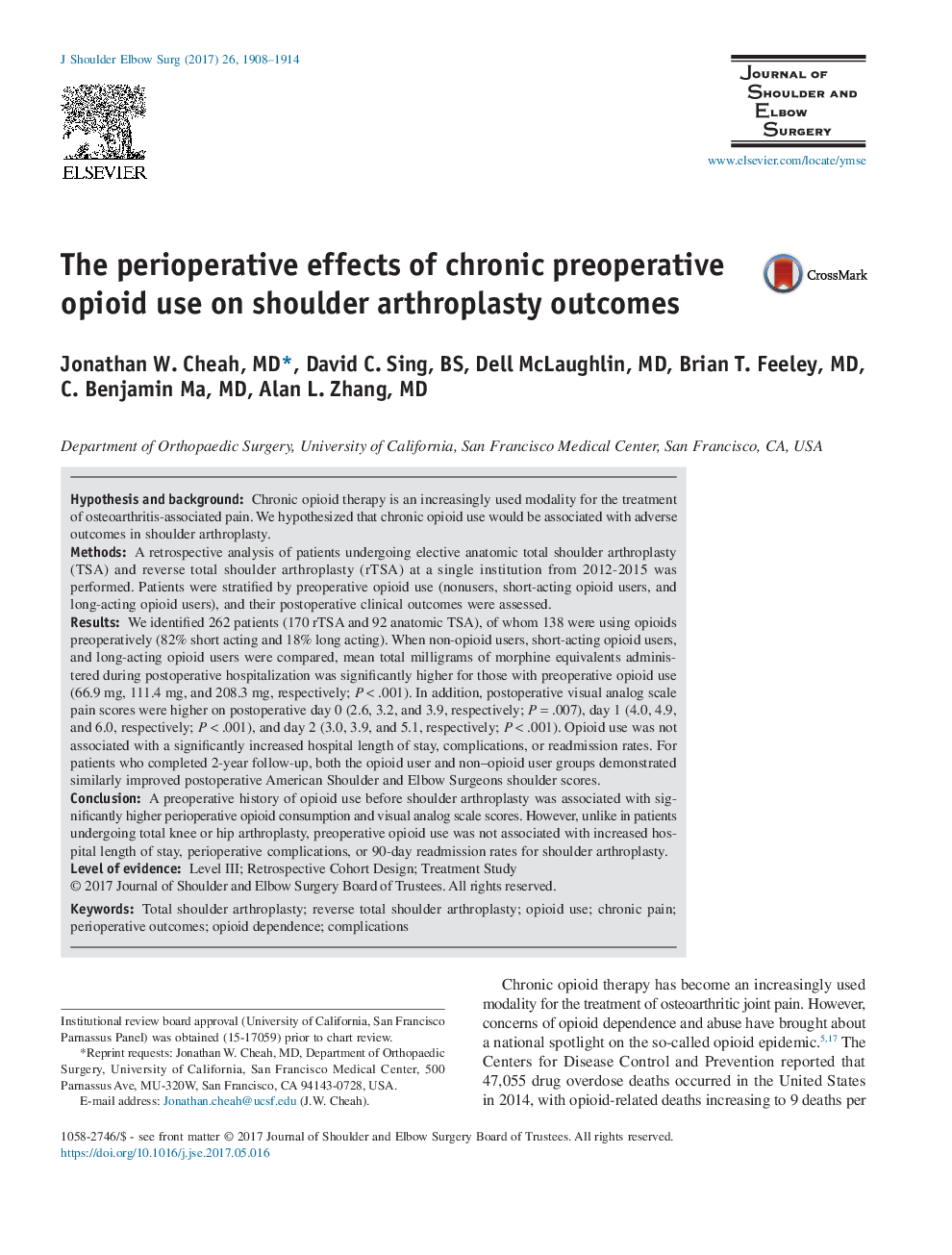| کد مقاله | کد نشریه | سال انتشار | مقاله انگلیسی | نسخه تمام متن |
|---|---|---|---|---|
| 5710063 | 1604678 | 2017 | 7 صفحه PDF | دانلود رایگان |
Hypothesis and backgroundChronic opioid therapy is an increasingly used modality for the treatment of osteoarthritis-associated pain. We hypothesized that chronic opioid use would be associated with adverse outcomes in shoulder arthroplasty.MethodsA retrospective analysis of patients undergoing elective anatomic total shoulder arthroplasty (TSA) and reverse total shoulder arthroplasty (rTSA) at a single institution from 2012-2015 was performed. Patients were stratified by preoperative opioid use (nonusers, short-acting opioid users, and long-acting opioid users), and their postoperative clinical outcomes were assessed.ResultsWe identified 262 patients (170 rTSA and 92 anatomic TSA), of whom 138 were using opioids preoperatively (82% short acting and 18% long acting). When non-opioid users, short-acting opioid users, and long-acting opioid users were compared, mean total milligrams of morphine equivalents administered during postoperative hospitalization was significantly higher for those with preoperative opioid use (66.9âmg, 111.4âmg, and 208.3âmg, respectively; Pâ<â.001). In addition, postoperative visual analog scale pain scores were higher on postoperative day 0 (2.6, 3.2, and 3.9, respectively; Pâ=â.007), day 1 (4.0, 4.9, and 6.0, respectively; Pâ<â.001), and day 2 (3.0, 3.9, and 5.1, respectively; Pâ<â.001). Opioid use was not associated with a significantly increased hospital length of stay, complications, or readmission rates. For patients who completed 2-year follow-up, both the opioid user and non-opioid user groups demonstrated similarly improved postoperative American Shoulder and Elbow Surgeons shoulder scores.ConclusionA preoperative history of opioid use before shoulder arthroplasty was associated with significantly higher perioperative opioid consumption and visual analog scale scores. However, unlike in patients undergoing total knee or hip arthroplasty, preoperative opioid use was not associated with increased hospital length of stay, perioperative complications, or 90-day readmission rates for shoulder arthroplasty.
Journal: Journal of Shoulder and Elbow Surgery - Volume 26, Issue 11, November 2017, Pages 1908-1914
